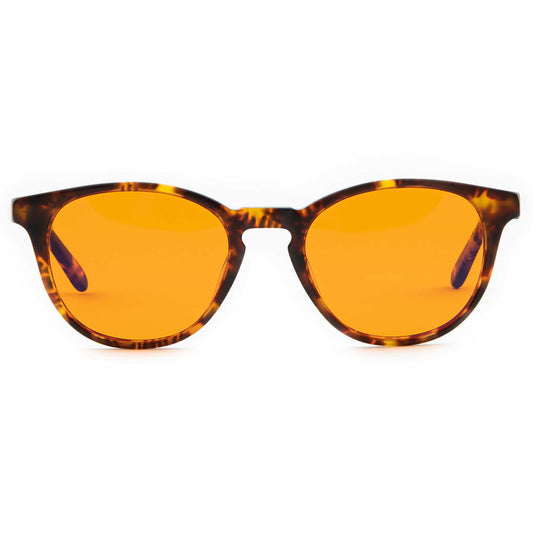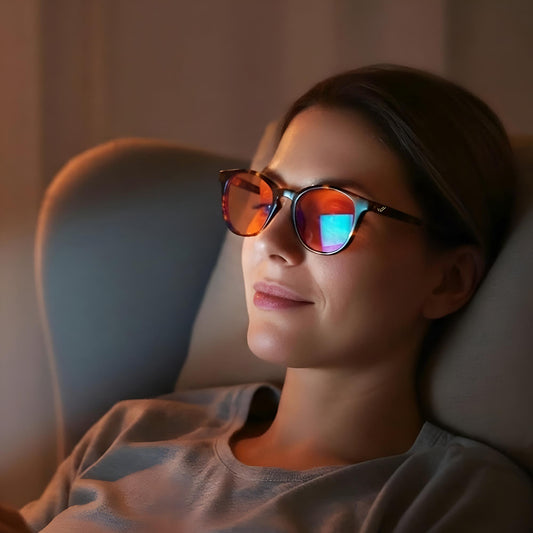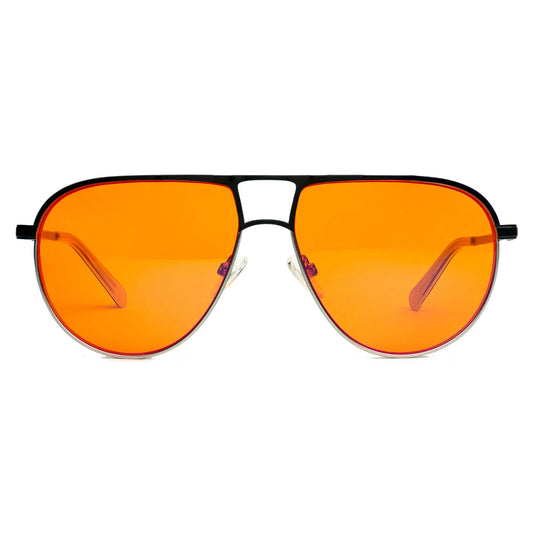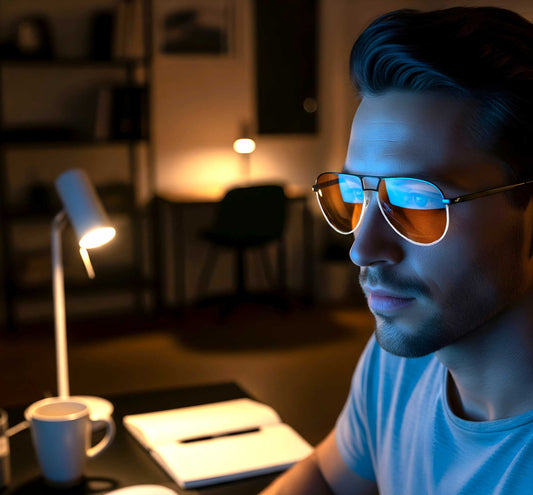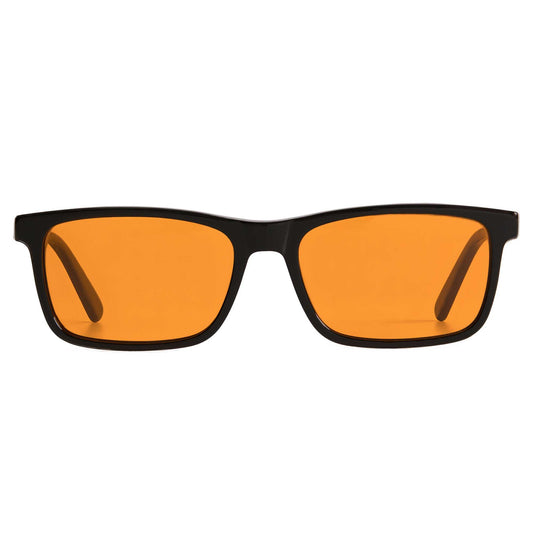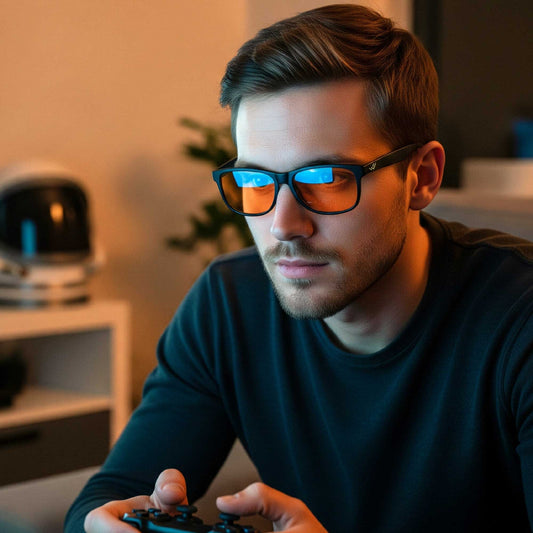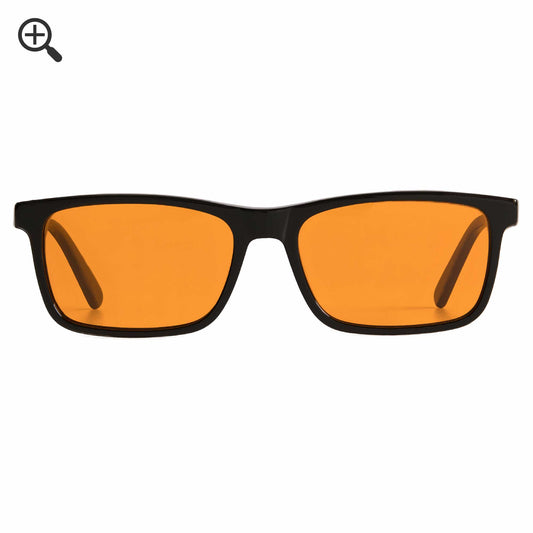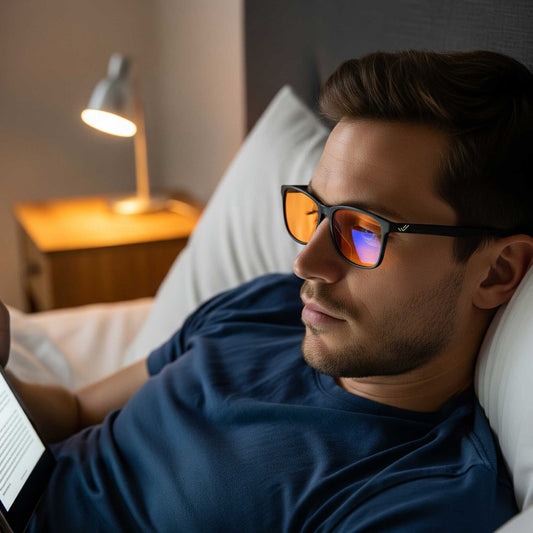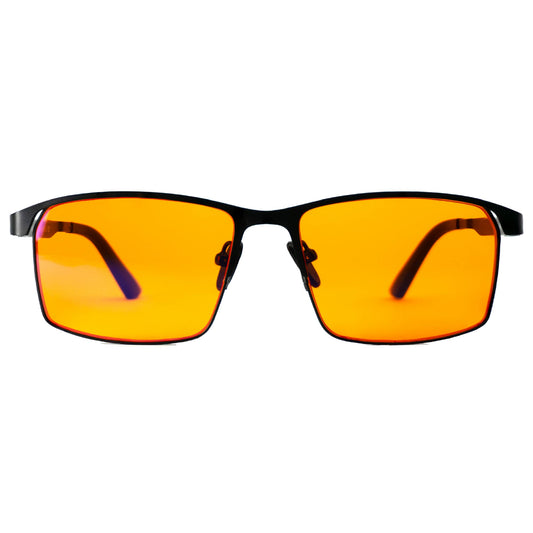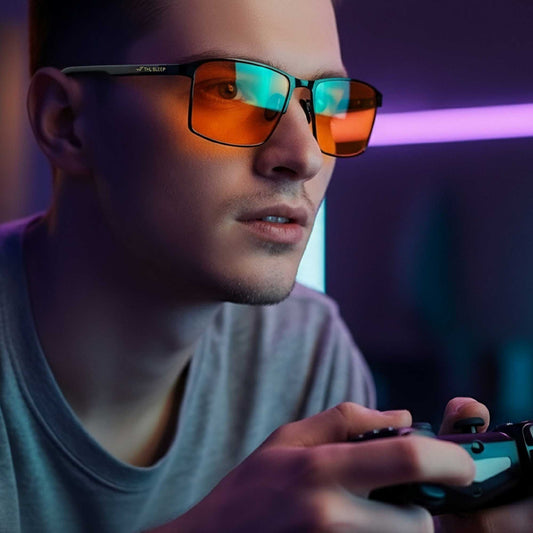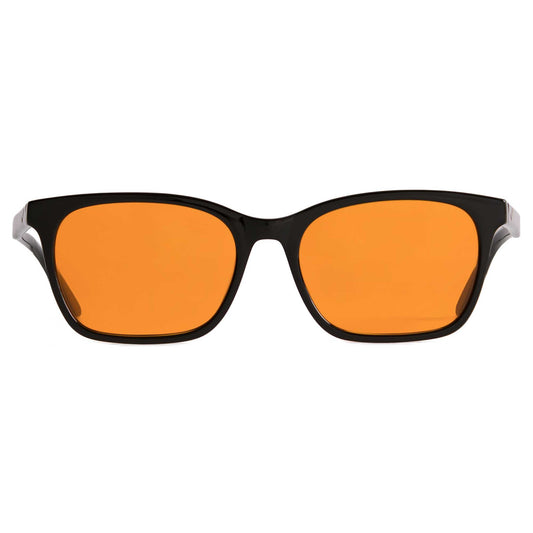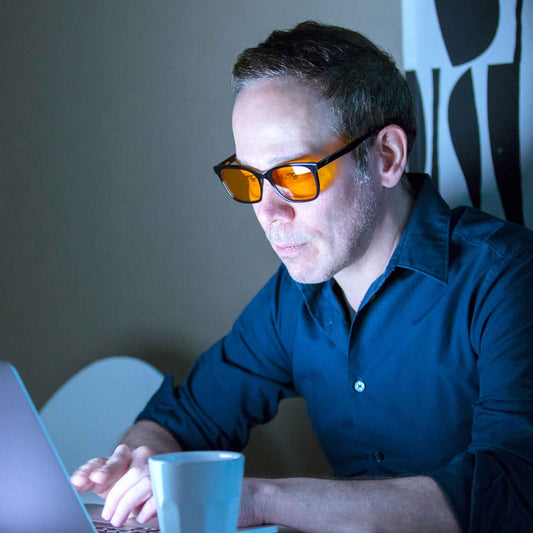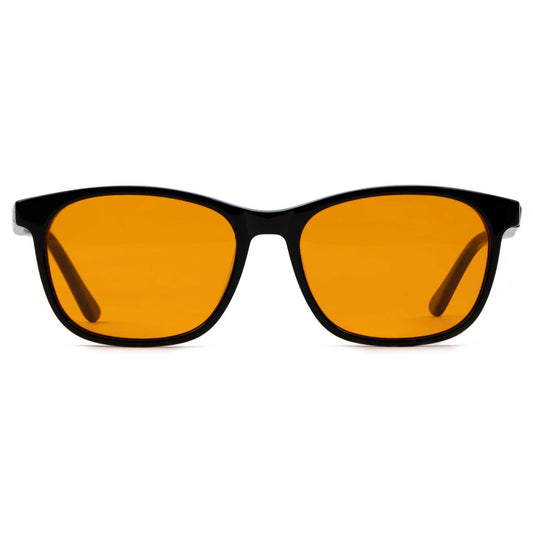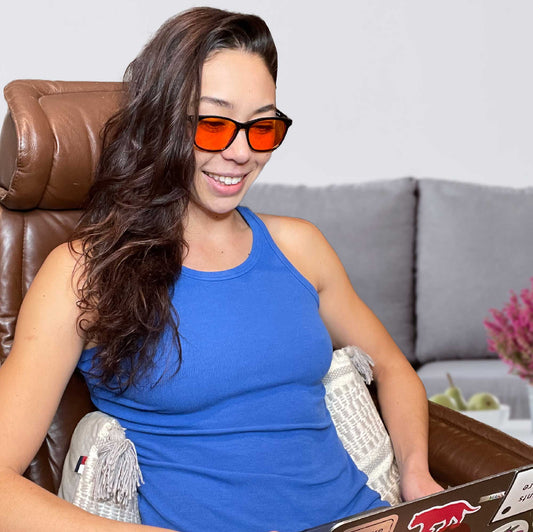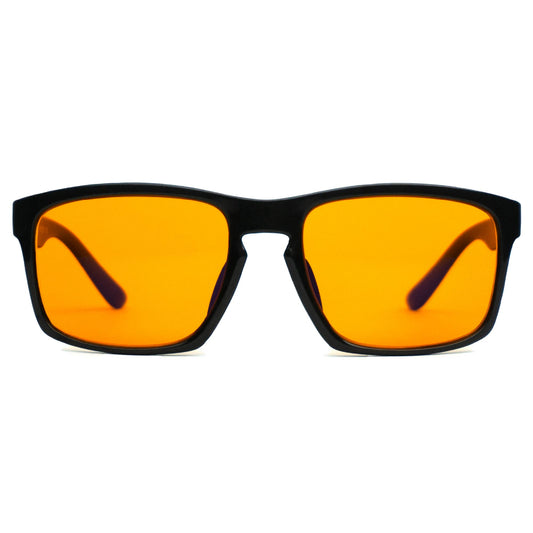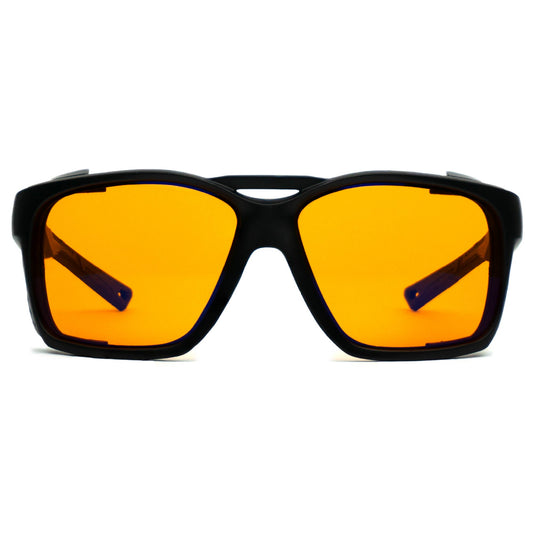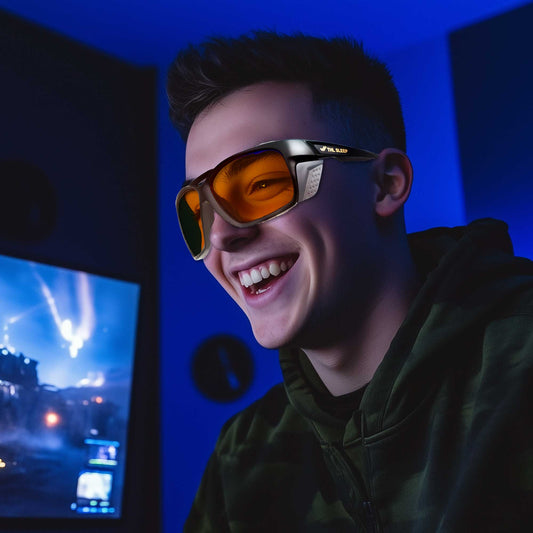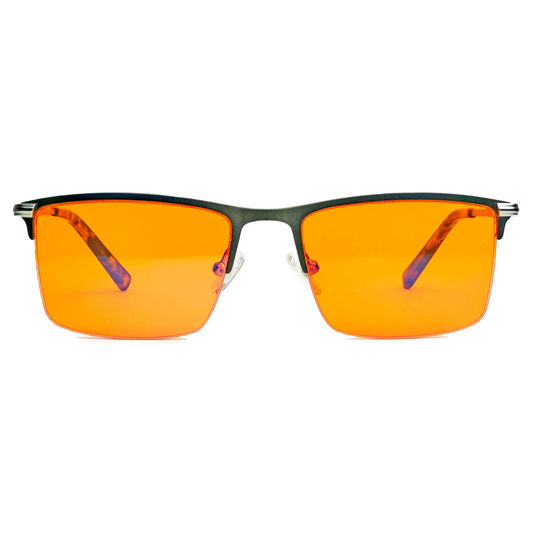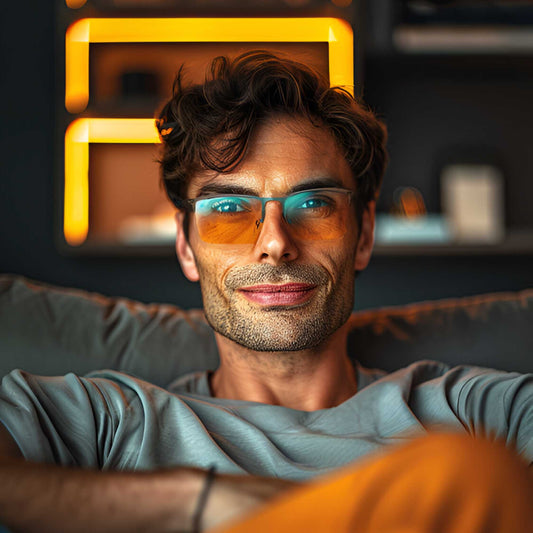(10 minute read)
Blue light and insomnia. Do you know someone with insomnia? In this article, you will learn how insomnia symptoms are connected to blue light exposure. You will get some proven tactics that can help you to relieve these symptoms and normalize your melatonin sleep hormone levels.
How is blue light connected to insomnia?
I am sure you can relate to having a hard time falling asleep, lying in bed with a body resisting to get into sleep. Today, insomnia is one of the most commonly diagnosed sleep disorders. Research indicates that one in four Americans suffer from some kind of insomnia sleep disturbance each year. Among the most common symptoms are difficulties falling and staying asleep, as well as having an unrefreshing sleep despite sufficient time in bed. Persons with these symptoms often experience extensive fatigue and concentration difficulties during the day. The large variety of underlying factors can make it challenging to resolve this illness.
Blue light glasses and insomnia
Studies have shown that balancing such environmental factors as your daily light exposure can help to reduce these symptoms. The use of light-emitting digital devices like your smartphone, TV, or computer risks disturbing your sleep. Blue light exposure late at night suppresses your melatonin levels, with a high risk of decreased sleep quality and a longer time to fall asleep. A randomized controlled trial showed that wearing blue light blocking glasses with amber lenses two hours before bedtime improved sleep in individuals with insomnia symptoms. The result of the study shows that participants improved their overall sleep quality with longer total sleep duration. It was concluded that this type of glasses is a safe, affordable, and easily implemented therapeutic intervention for insomnia symptoms. Another study with thirty insomnia patients strengthens these findings.
Aside from better sleep, it has been shown that using blue light glasses at night can improve cognitive functions, such as memory and processing speed, among individuals with insomnia symptoms. All these findings conclude that blue-light-blocking glasses made for sleep improvement is a powerful tool to help relieve insomnia.
As for blue-light exposure before bedtime, light can disturb your sleep during the night and early morning. To be well-prepared for a restful night's sleep, make sure your sleeping environment is totally dark. Remove all artificial light sources in your bedroom, including smartphones and alarm clocks. If devices in your bedroom emit light, make sure to cover them entirely so that no light can seep through. When you cannot see your hand in front of you, the room is optimized for sleep. This amount of darkness will ensure that you get the bestsleep possible, with optimal melatonin levels, while eliminating the risk of light waking you up during the night or in the morning.
In our fast-paced digital world, many people suffer from stress, depression, and anxiety. These three are some of the most common risk factors related to insomnia. I am sure you can recognize times in your life where daily life seems a bit too much to handle. During periods like these, we often wish that we could take time out to regain a calm and rested state of mind. As for external factors, essential nutrition such as minerals and vitamins are important for a body in balance. Among all these, some have been proven to work well for sleep and relaxation.

Better Sleep Starts Tonight
Protect your eyes and improve your sleep with THL SLEEP’s orange lens blue light glasses. They block 99.5% of blue light and 75% of green light – wavelengths that keep you awake at night.
The worst part of insomnia is feeling wide awake against your will. The next time your mind is racing under a bright screen at midnight, try slipping on these glasses. They cast your world in a twilight hush that whispers “bedtime” to your brain.
Plus, enjoy our 100-Day Risk-Free Trial.
💡 Blog Reader Offer: Use code SLEEPBLOG for an extra 5% off your first order on Amazon!
🛒 Shop Sleep Glasses NowSupplements to relieve insomnia
I am sure you have heard about vitamin B6. This is a B-vitamin with many important functions in the body essential for the creation of various neurotransmitters, including melatonin, serotonin, and GABA. Studies have demonstrated that persons with depression and anxiety have significantly lower blood levels of the active form of vitamin B6 called pyridoxal phosphate (PLP). This risk factor is making these individuals more susceptible to sleep disturbances and insomnia symptoms. So, if you are looking for relief, it can be a good idea to add vitamin B6 to your supplement routine.
Among all minerals, magnesium has been proven to result in better sleep, reduced anxiety and stress. Magnesium has a calming effect via the activation of your brain's GABA receptors and as GABA is the primary inhibitory neurotransmitter this plays a vital role in relaxation. With this in mind, magnesium becomes an excellent mineral that can relieve insomnia symptoms, especially if taken together with Vitamin B6. For an easy way to get both of these in one supplement, I recommended Jarrow Magnesium Optimizer, as this supplement contains high-quality magnesium malate combined with vitamin B6.
There are more easy tricks that you can implement to support your best sleep. To start your sleep journey today, read our 8-point sleep guide. In this guide, you will find some of the best ways to improve your sleep, and it is easy and totally free. The guide contains all the sleep tips from this episode and additional points for your reference.
I hope you got something valuable from this article—giving you a quick overview of the connection between blue light and insomnia. Let us educate others about the dangers of blue light and the easy way to manage our daily light consumption.
Click on the share links below to help others improve their sleep naturally.
Happy Deep Sleep,
Oskar Eriksson, M.Sc.
The Sleep Engineer™





